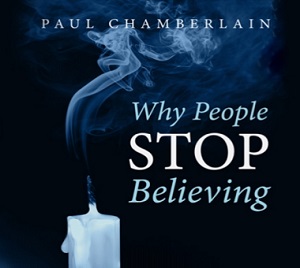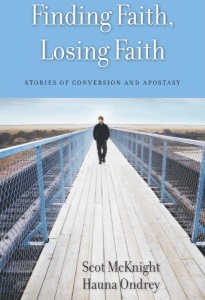
Joshua Harris at Joffre Lakes, from Instagram.
Joshua Harris has gone through some major changes since he arrived in Vancouver a few years ago. He came to study theology at Regent College. While there he made a documentary film which questioned many of the premises underlying I Kissed Dating Goodbye, the book that propelled him to fame at 21 – at least in wide swathes of the evangelical world. (I wrote about the process of making the film here; to watch the film go here.)
His recantation – or at least serious reconsideration – of the book and ‘purity culture’ made news well beyond the Christian community, leading to articles in publications such as Cosmopolitan and USA Today.
A statement on his website about I Kissed Dating Goodbye says, in part:
While I stand by my book’s call to sincerely love others, my thinking has changed significantly in the past 20 years. I no longer agree with its central idea that dating should be avoided. I now think dating can be a healthy part of a person developing relationally and learning the qualities that matter most in a partner. I recommend books like Boundaries in Dating by Dr. Henry Cloud and True Love Dates by Debra Fileta, which encourage healthy dating.
There are other weaknesses too: in an effort to set a high standard, the book emphasized practices (not dating, not kissing before marriage) and concepts (giving your heart away) that are not in the Bible. In trying to warn people of the potential pitfalls of dating, it instilled fear for some – fear of making mistakes or having their heart broken.
The book also gave some the impression that a certain methodology of relationships would deliver a happy ever-after ending – a great marriage, a great sex life – even though this is not promised by scripture. . . .
In light of the flaws I now see in I Kissed Dating Goodbye, I think it’s best to discontinue its publication . . .
Over the summer, Harris reappeared, when he announced on Instagram first that he was separating from his wife, and then that he no longer considered himself a Christian. Those revelations – and the fact that Harris is not the only Christian leader to have renounced his faith in the past few years – have sparked considerable social media activity and some soul-searching in the Christian community.
 Douglas Todd wrote a good article (Sexual purity mega-author Joshua Harris rejects it all after move to Vancouver🙂 August 31 in The Vancouver Sun:
Douglas Todd wrote a good article (Sexual purity mega-author Joshua Harris rejects it all after move to Vancouver🙂 August 31 in The Vancouver Sun:
The celebrity author is now promoting himself simply as “a wordsmith and storyteller who helps clarify then amplify messages that matter.” On Instagram, where he has 30,000 followers, he seeks clients. [He is running a marketing company in Vancouver.] “I use the power of story to help businesses connect with their customers. Message clarity, marketing strategy, website design. Let’s work together!”
But Harris has also said he is no longer talking to the media about his turnaround on sexual ethics. He turned down Postmedia’s request for an interview, saying “right now I’ve been declining all media interviews related to my marriage and change in beliefs,” adding he appreciated the “reaching out.”
That leaves his inner transformation somewhat of a mystery to followers. The thousands of comments being tossed around online are mixed. Some on social media say he did great damage by promoting strict purity. Others in the conservative Christian media urge him to return to the evangelical fold. Some ask, “Are u gay?” And another group admires his “courage” and “honesty.”
Go here for the full article.
Why People Stop Believing
 Trinity Western University professor Paul Chamberlain published a book just last year which is relevant to Harris’s situation. Why People Stop Believing looks at Christian leaders who have walked away from their faith.
Trinity Western University professor Paul Chamberlain published a book just last year which is relevant to Harris’s situation. Why People Stop Believing looks at Christian leaders who have walked away from their faith.
He wrote:
Perhaps you’ve wondered wondered how anyone could walk away from Christian faith. Did they truly know the God of the Bible? How can you walk away from that?
While it may seem unimaginable, there is really nothing new about this phenomenon. Even St. Paul, in the New Testament, wrote about two men named Hymanaeus and Alexander who, in his words, had “suffered shipwreck with regard to their faith” (1 Timothy 1:20).
. . . I have found it difficult to establish neat and tidy categories for why people leave the faith. In some cases there has been a traumatic negative experience, while in others there has been a sense of having been let down by members of the Christian community. At times a series of unresolved doubts has eaten away at one’s confidence in the basic truth claims of Christianity, or there has been a moral failure coupled with difficulty finding renewed acceptance among former Christian friends and colleagues.
When one looks at the journeys of these former Christian leaders, it becomes immediately obvious that there is a variety of causes and motivating factors, and usually a combination of them.
Chamberlain’s book is apologetic in nature, seeking to respond to former Christian leaders who now critique Christianity with considerable sophistication, having been thoroughly enmeshed in it themselves. Chapter headings include ‘Why would God do that?,’ ‘Undermining the New Testament authors’ and ‘Discrepancies among the Gospels.’
In that sense, it is too early to say how fully the book applies to Harris. He has left the faith and has been critical, sometimes just implicitly, of the conservative Christian environment in which he was raised and was a pastor, but as far as I know he has not undertaken any sustained critique of Christianity or aligned himself with groups that do.
His Instagram statement about leaving the faith was quite gracious, and included this:
“I am learning that no group has the market cornered on grace. This week I’ve received grace from Christians, atheists, evangelicals, exvangelicals, straight people, LGBTQ people and everyone in-between. Of course there have also been strong words of rebuke from religious people. While not always pleasant, I know they are seeking to love me. (There have also been spiteful, hateful comments that angered and hurt me.)
 Scot McKnight, an insightful theologian and author of some 75 books, wrote Recent Stories of Leaving the Faith on his Jesus Creed blog. Quoting from a chapter he contributed to Finding Faith, Losing Faith, whose “conclusions were based on months of reading depressing stories of ‘de-conversion’ or ‘apostasy’. . . . My conclusion . . . is that a person apostasizes or leaves the faith to find independence. This autonomy can be intellectual, psychological or moral (or behavioral) or more than one or all of them.”
Scot McKnight, an insightful theologian and author of some 75 books, wrote Recent Stories of Leaving the Faith on his Jesus Creed blog. Quoting from a chapter he contributed to Finding Faith, Losing Faith, whose “conclusions were based on months of reading depressing stories of ‘de-conversion’ or ‘apostasy’. . . . My conclusion . . . is that a person apostasizes or leaves the faith to find independence. This autonomy can be intellectual, psychological or moral (or behavioral) or more than one or all of them.”
Quoting from his chapter in the book:
In essence, those who leave the faith discover a profound, deep-seated and existentially unnerving intellectual incoherence to the Christian faith. The faith that once held their life together, gave it meaning and provided direction simply no longer makes sense. For such persons, the whole of life has to be reconstructed from the bottom up. . . .
What were the issues and ideas and experiences that precipitated their “crisis,” their walking away and their quest for a new and different kind of life, one no longer related to that original faith?
- Scripture in tension with what one believes Scripture is/ought to be
- Science and faith in a war with one another
- Christian hypocrisy
- Hell as taught: eternal conscious punishment/torture
- The God of the Bible (Old Testament usually)
In my study, one and nearly always a combination of the above five major elements forms the core of a crisis in the viability of one’s orthodox Christian faith.
Go here for the full comment.
Freedom to think

Joshua Harris at the Pride Parade in August. Instagram photo
Harris does seem to fit the outlines drawn by Chamberlain and McKnight. That is, he came from a fairly narrow background, had all the answers and shared them broadly. As he became aware of the narrowness of his approach, and was being attacked even by some of those who had followed him in good faith, he began to reassess his views.
Enrolling at Regent College was, apparently, part of that process. On his website he says of the school:” I studied a mind-expanding mixture of art, religion, history, culture, documentary film-making and content marketing.”
I am certainly not suggesting that Harris’s studies at Regent College caused him to lose his faith – but a new study does point out that a vibrant intellectual environment can be challenging for those who have not been exposed to it before. A recent Christianity Today article (‘Doubt Your Faith at an Evangelical College? That’s part of the Process’) made the point:
A new two-part study published in Christian Higher Education shows how common it is for students at evangelical colleges and universities to struggle with their faith. In fact, they are more likely to feel unsettled about spiritual matters, unsure of their beliefs, disillusioned with their religious upbringing, distant from God or angry with God than their peers at secular schools as well as those at mainline Protestant and Catholic institutions. . . .
Contemporary leaders at Christian colleges and universities don’t really have to push students to spiritual crisis. They expect students to come to this point in their faith and prepare to help them through it.
Todd included these quotes from Harris in his article:
“I have lived in repentance for the past several years – repenting of my self-righteousness, my fear-based approach to life, the teaching of my books, my views of women in the church and my approach to parenting to name a few,” he wrote on Instagram.
“But I specifically want to add to this list now: to the LGBTQ+ community, I want to say that I am sorry for the views that I taught in my books and as a pastor regarding sexuality. I regret standing against marriage equality, for not affirming you and your place in the church, and for any ways that my writing and speaking contributed to a culture of exclusion and bigotry. I hope you can forgive me.”
Chamberlain noted in his book:
As I have examined a number of these reasons [compelling some former leaders to leave the faith], I have been struck, as a Christian philosopher, by one particular theme running through them all, and that is the claim that rejecting Christian faith has brought a new-found freedom to think and reason.
For those who have ears to hear
Neither McKnight nor Chamberlain suggests that all objections to Christian faith relate to intellectual objections. But many do, and Chamberlain makes this point:
One of the most exciting facets of my own journey has been to learn repeatedly that good satisfying answers are available for the toughest challenges one can put to Christian faith. The resources produced by the Christian community around the world over the past 2,000 years are simply breath-taking in this regard. I’ve found few things more encouraging to my own life of faith than coming to know some of these resources.
If we face questions about our faith, we can rest assured that someone somewhere at some time in the Christian community has also encountered our challenge and probably written on it as well. There is no reason to be uninformed when responding to challenges to Christian faith. We are not alone in this journey and there is no reason to act like we are.
McKnight concludes his article on a more sombre note:
Regardless of who the person is and where they came from, in the end those who have walked away from the faith have come to terms with an inner reality: they have to make up their own mind and live with the results.
Best wishes to Joshua Harris as he remains with us in Vancouver; I join those who would love to welcome him back to the fold.

I wrote him a sort of rebuke comment and he obviously was “hurt” (and angered) by my attempt to reach out to him in love as a Christian. I guess mine was not good enough. I think maybe too hurtful (but let’s be real, he just judged it as hate and spite).
It is personally so disparaging for me as someone who thought these Christian authors were pillars of character and grace. He sounded so nice in all his interviews before. I’m personally really disappointed that he just flips the script on everyone, even well-meaning people. I mean, what did I expect? I guess I thought he was the old Joshua Harris who was homeschooled and wrote books to try to help people in their faith.
Stop patting Joshua on the back for his honesty! He is a rebel, a lawbreaker, who not only proudly boasts of his sin but encourages others to indulge in it as well! It is a fearful thing to fall onto the hands of the living God in sin. It will destroy you spirit, soul and body. Judgment awaits all rebels. He is close to the unpardonable sin, don’t go with him!
There is something missing, unless I missed it, that reflects the role of allowing the Bible to communicate truth, faith etc. by way of the Holy Spirit.
Joshua Harris in his mid-forties is about thirty years past the common crisis stage in formulating a life understanding. On the other hand, there’s no apparent change whatsoever – he’s still head over heels into marketing and self-promotion. He has so much territory yet to explore nel mezzo del cammin. Unless he’s somehow decided that he’s arrived. A matter which really is not up to him, in the final analysis. May he fare well.